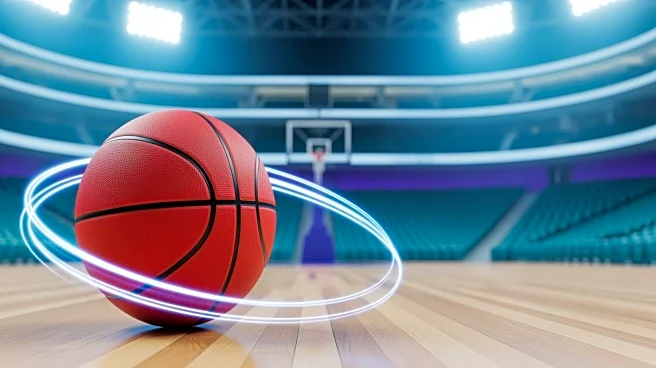What's Happening?
Netflix is set to premiere the second season of 'Squid Game: The Challenge,' a reality competition inspired by the popular dystopian thriller 'Squid Game.' The new season, consisting of 10 episodes, will begin streaming on November 4, with the first four
episodes available at 3 a.m. ET. Contestants from diverse backgrounds, including a lobster fisherman and an NFL cheerleader, will compete for a $4.56 million prize, the largest in U.S. reality TV history. The show features high-stakes challenges, psychological twists, and shock eliminations, mirroring the intense atmosphere of the original series. The reality spin-off has already garnered significant acclaim, winning a BAFTA Award and receiving three Emmy nominations.
Why It's Important?
The return of 'Squid Game: The Challenge' highlights the growing trend of reality TV shows inspired by popular scripted series. This format not only extends the franchise's reach but also taps into the audience's fascination with high-stakes competition and psychological drama. The substantial prize money underscores the show's ambition to attract a wide range of contestants and viewers, potentially setting new standards for reality TV production values and audience engagement. As Netflix continues to expand its reality TV offerings, this series could influence future programming decisions and viewer expectations in the streaming industry.
What's Next?
Following the premiere, subsequent episodes will be released on November 11 and November 18, concluding with the finale. As the competition progresses, viewers can expect increased tension and strategic gameplay among contestants. The show's success may prompt Netflix to explore additional reality formats based on popular scripted content, further diversifying its programming slate. Additionally, the outcome of the competition could lead to increased visibility and opportunities for the participants, potentially impacting their personal and professional lives.
Beyond the Headlines
The show's format raises questions about the ethical implications of reality TV competitions that mimic intense and potentially harmful scenarios. While the series offers entertainment value, it also challenges participants' psychological resilience and decision-making under pressure. This dynamic may spark discussions about the responsibilities of producers in ensuring the well-being of contestants and the portrayal of competitive environments in media.
















